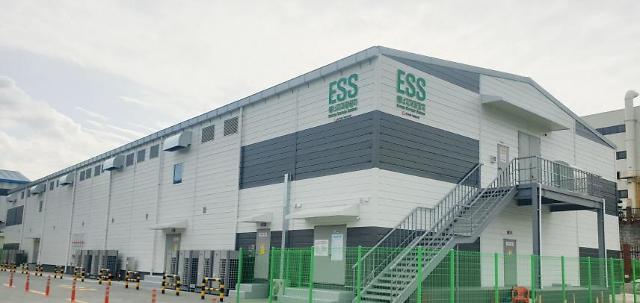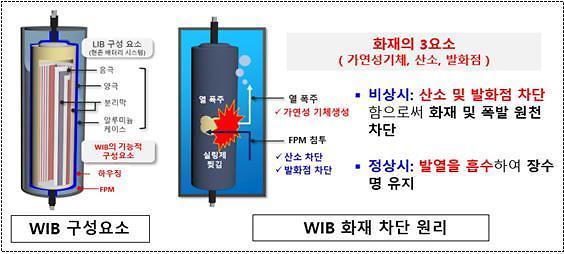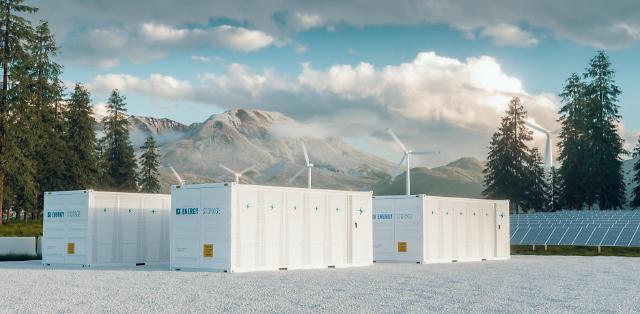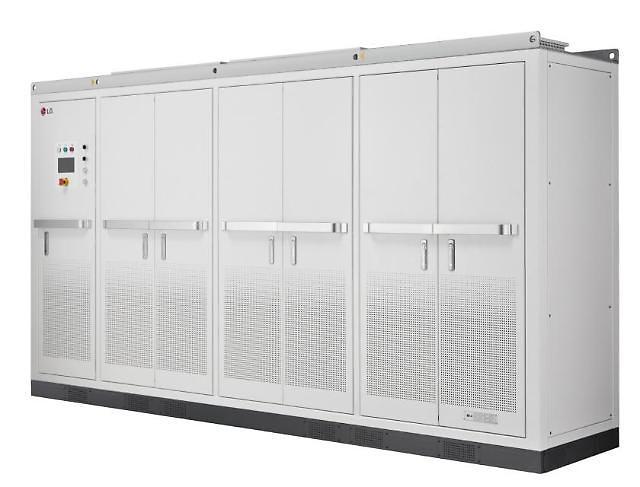
[Courtesy of LG Electronics]
An energy storage system (ESS) is an integrated system of secondary battery packs. It is normally connected to a renewable energy source such as a solar power plant or a wind farm to collect electricity and provide power to a nearby facility or town's power grids or sell electricity back to power companies. ESS is also used to store electricity during off-peak hours to save electricity costs.
LG said in a statement on December 27 that the special ESS facility was built at LG Smart Park, a smart factory based in Changwon some 300 kilometers (186 miles) southeast of Seoul. The facility, which will use stored electricity in the daytime, has a total battery capacity of 163 megawatt-hours, which can power some 14,000 households every day. LG said the new system can replace 15 percent of the average daily power consumption at the smart factory.
In March 2022, LG Smart Park was selected by the World Economic Forum, an international non-governmental and lobbying organization based in Switzerland, as a new "lighthouse" facility that demonstrates various advanced technologies such as cloud computing, big data, and artificial intelligence. It is South Korea's third lighthouse factory after those run by POSCO and LS Electric.
The smart factory is also a testbed for renewable energy infrastructure. By 2025, LG Electronics will build a 20,000 square meter wide solar power plant, which is the size of three soccer fields, on the rooftop of LG Smart Park through a direct power purchase agreement (PPA), in which power suppliers and users directly trade electricity without having to go through state power transmission and distribution networks. The project can reduce greenhouse gas emissions by about 3,000 tons annually.
Copyright ⓒ Aju Press All rights reserved.





View more comments